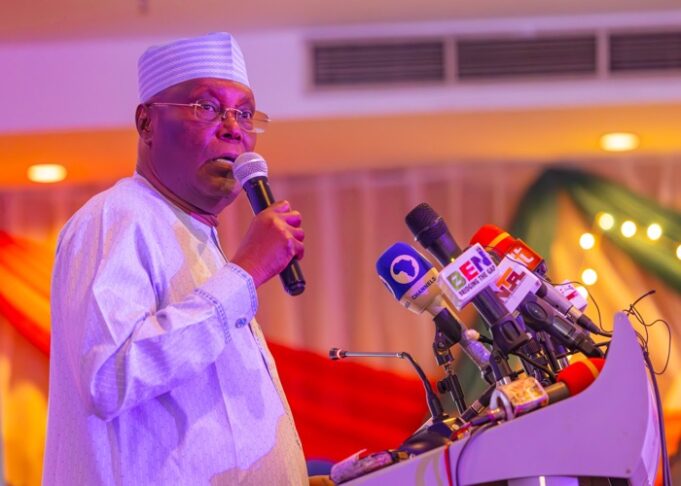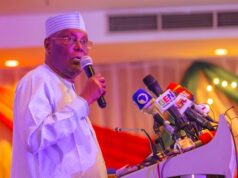The presidential candidate of the Peoples Democratic Party (PDP) in the 2023 election, Atiku Abubakar, says the foreign exchange (FX) management policy of President Bola Tinubu’s administration was put together without proper plans and consultations with stakeholders in the country.
Atiku said Tinubu’s government did not allow the Central Bank of Nigeria (CBN) to design and implement an FX policy to revive the country’s economy.
The former Vice President said this in a statement issued on Sunday, February 18, 2024.
He said: “Tinubu’s new policy FX management policy was hurriedly put together without proper plans and consultations with stakeholders. The government failed to anticipate or downplayed the potential and real negative consequences of its actions.
“The government did not allow the CBN the independence to design and implement a sound FX management policy that would have dealt with such issues as increasing liquidity, curtailing/regulating demand, dealing with FX backlogs and rate convergence.”
Economy: Presidency slams Atiku for blaming Tinubu
The former Vice President said he listed the solutions to economic hardship in his policy document titled, ‘My Covenant With Nigerians’, noting that he called for the elimination of multiple exchange rate windows as they only enrich “opportunists, rent-seekers, middlemen, arbitrageurs, and fraudsters”.
He said: “A fixed exchange rate system would be out of the question. First, it would not be in line with our philosophy of running an open, private sector-friendly economy. Secondly, operating a successful fixed-exchange rate system would require sufficient FX reserves to defend the domestic currency at all times.
“But as is well known, Nigeria’s major challenge is the persistent FX illiquidity occasioned by limited foreign exchange inflows to the country. Without sufficient FX reserves, confidence in the Nigerian economy will remain low, and Naira will remain under pressure. The economy will have no firepower to support its currency. Besides, a fixed-exchange rate system is akin to running a subsidy regime!
“On the other hand, given Nigeria’s underlying economic conditions, adopting a floating exchange rate system would be an overkill. We would have encouraged the Central Bank of Nigeria to adopt a gradualist approach to FX management. A managed-floating system would have been a preferred option.
“In simple terms, in such a system, the Naira may fluctuate daily, but the CBN will step in to control and stabilize its value. Such control will be exercised judiciously and responsibly, especially to curve speculative activities.”
Atiku, therefore, reiterated a belief that “if and when the government is ready to open itself to sound counsels, as well as control internal bleedings occasioned by corruption and poorly negotiated foreign loans, the Nigerian economy would begin to find a footing again.”
- NEC gives Abuja, Kwara, others one-week ultimatum to submit positions on state police - November 21, 2024
- Gunmen kill lawyer in Benue - November 21, 2024
- Atiku: Tinubu’s loans bone-crushing to Nigerians - November 21, 2024










